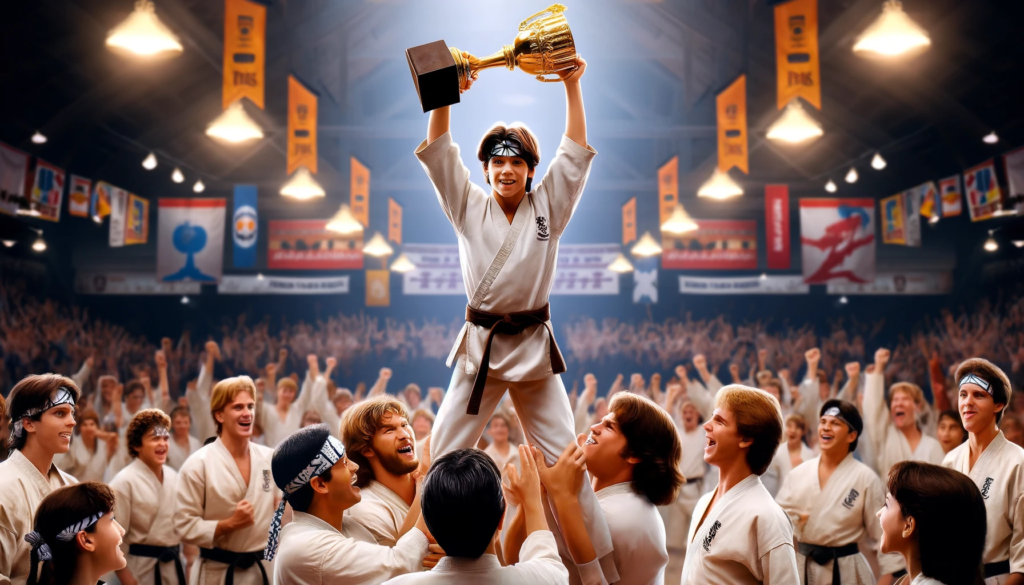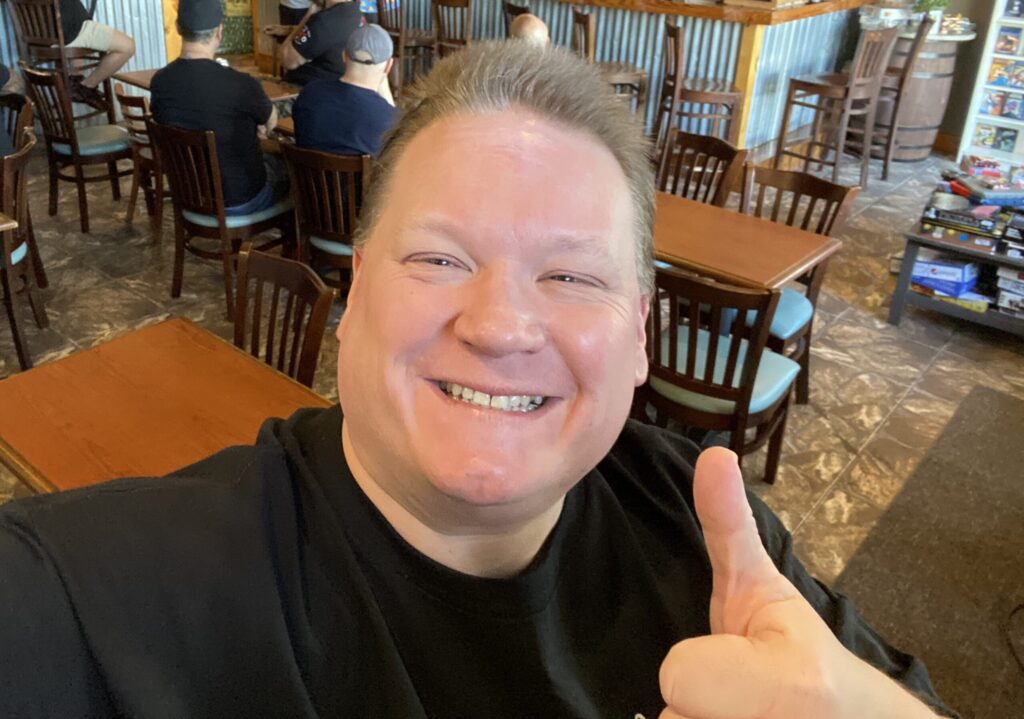Remember “The Karate Kid”? It’s a tale as old as time about mastering skills through dedication and repeated practice. Daniel LaRusso didn’t become a karate champ overnight. It took sweat, time, and a lot of “wax on, wax off” to get there.
Now, think about copywriting. It’s not much different from karate. Both arts require patience, practice, and a commitment to mastering the basics. In copywriting, repetition isn’t just a practice tool; it’s a powerful technique to hammer your message home and make it stick.
In this post, we’ll explore how repeating key phrases, ideas, and themes can transform your writing from forgettable to memorable. Get ready to learn how to use repetition to enhance the impact of your message and keep your audience coming back for more.
The Foundation of Repetition
In copywriting, repetition isn’t just about saying the same thing over and over. It’s about creating a rhythm that embeds your message into the reader’s memory. Think of it like the karate lessons in “The Karate Kid.” Daniel LaRusso practiced the same moves repeatedly to build a solid foundation in karate. Similarly, repeating key points in your copy ensures they stick with your audience.
Just as Daniel’s repetitive training led to mastery, using repetition in your writing helps reinforce your message. It makes your content memorable and more persuasive. When you consistently highlight a benefit or a call to action, it becomes more likely that your audience will remember and act on it.
Moreover, consistency across your marketing channels amplifies this effect. Whether a customer reads your blog, receives your emails, or sees your ads, encountering the same core messages strengthens their understanding and trust in your brand. This consistency helps forge a stronger connection with your audience, much like the trust Mr. Miyagi and Daniel built through their repetitive training sessions.
Repetition, when done right, doesn’t bore; it reinforces. It builds a narrative echo that resonates more deeply each time it is heard. Just as Daniel’s repeated drills prepared him for success, strategic repetition in your copy prepares your audience to embrace and act on your message. Let’s keep this practice going and see how repetition can turn your next campaign into a knockout.
Reinforcement Through Repetition
Repetition works deep in our brains. It builds paths we find easy to follow again and again. Just as Daniel LaRusso mastered karate moves through constant repetition, your audience can master your message the same way. When you repeat key points, you’re paving neural pathways, making it easier for your audience to recall your message.
Think about how Mr. Miyagi taught Daniel the classic “wax on, wax off” technique. At first, it seemed mundane. Yet, this repetitive motion ingrained in him the foundation of defensive moves. In copywriting, when you repeatedly highlight a unique selling proposition or a call to action, you engrain this information into your audience’s memory. It’s like training them to think of you when they need a solution.
Let’s look at a real-world example. Consider the famous “Just Do It” slogan by Nike. This simple phrase appears everywhere from TV commercials to billboards to online ads. Nike’s repetition of this powerful call to action transforms it from a mere slogan to a motivational mantra for athletes and consumers worldwide.
Another example is the memorable “Got Milk?” campaign. By repeatedly asking this question in various contexts, the campaign made “Got Milk?” synonymous with drinking milk, effectively boosting milk sales and consumption.
These examples show that when you apply the principle of repetition effectively, you not only make your message stick but also motivate action. This strategy doesn’t just remind—it reinforces and strengthens the connection each time your audience encounters your message. So, keep repeating your key points. Make them stick. Make them count.
Repetition and Brand Recognition
Repetition isn’t just a tactic; it’s a powerhouse in building brand recognition. Just as Daniel LaRusso’s repeated karate practices boosted his confidence and skill, frequent exposure to your brand does the same for customer recognition and loyalty.
In “The Karate Kid,” Daniel repeats key moves until they become second nature. Each repetition enhances his familiarity with the techniques, boosting his confidence. Similarly, when your audience repeatedly sees your brand message, it becomes more familiar and trusted. This familiarity breeds comfort, and comfort leads to loyalty.
Consider how often you’ve heard a jingle and immediately recognized the brand associated with it. This isn’t by chance. It’s repetition at work. Each time the jingle plays, it reinforces the brand’s presence in your mind. Before long, you’re not just recalling the tune but recalling the brand at the point of purchase.
For example, think about Apple’s “Think Different” campaign. By consistently associating their products with innovation through repeated messaging, Apple cemented its reputation as a leader in creative technology solutions. Customers don’t just recognize Apple; they trust it to deliver cutting-edge tech.
Repetition can transform a one-time buyer into a lifelong customer. It turns occasional recognition into permanent familiarity. Brands that master this are not just seen; they are remembered. And in a world filled with endless choices, being the memorable choice is what counts.
So, repeat your core message. Embed it in every campaign. Make it a part of your identity. Like Daniel’s punches and kicks, your message will strike stronger with every repetition.
Balancing Repetition and Engagement
Repetition hones skills and builds brand recognition, but overdo it and you risk turning your audience away. The key? Keep it fresh, just like Mr. Miyagi varied Daniel’s training in “The Karate Kid.”
Remember Daniel’s surprise when he found out that waxing cars and painting fences were part of his karate training? Each task used a different method but reinforced the same essential skills. Similarly, you can weave your core message through various creative formats to keep your audience engaged. Mix up your delivery with videos, infographics, podcasts, and interactive content.
Start by tweaking the angle. Approach your key message from different perspectives. For example, if your core message is about the durability of a product, one campaign could focus on its long-lasting materials, another on customer testimonials, and a third on its lifetime service guarantee.
Also, keep your language vibrant. Use synonyms, metaphors, and analogies to give familiar concepts a new twist. This not only refreshes the content but also deepens the audience’s understanding and appreciation of the message.
Lastly, time your repetitions wisely. Space them out across different stages of your marketing funnel. This maintains familiarity without oversaturation, ensuring your message is welcomed, not wearisome.
By creatively mixing up how and when you repeat your message, you’ll strike the perfect balance between reinforcing your message and keeping your audience engaged.
The Ethics of Repetition
Using repetition in copywriting comes with a responsibility. It’s a powerful tool, much like the karate skills Daniel learns in “The Karate Kid.” And just as he must use his abilities wisely and ethically, so must marketers when they choose to repeat messages.
Repetition can easily cross into manipulation if not handled with care. It’s essential to use it to clarify and reinforce, not to coerce or deceive. Your audience trusts you to guide them, not mislead them with overly aggressive or misleading tactics.
Remember Mr. Miyagi’s lessons about balance and integrity? He taught Daniel that karate was for self-defense and personal growth, not for proving superiority or exploiting others. Similarly, use repetition to help your audience understand and remember your message, not to overwhelm or pressure them into decisions.
Keep your repetitions authentic. Reinforce your true benefits and real value, and always keep your audience’s best interests at heart. This builds trust and credibility, turning first-time listeners into long-term followers.
Ultimately, the goal of using repetition should be to inform and engage your audience. It should help them make educated choices based on clear, consistent information. This respects their autonomy and fosters a positive, ethical relationship with your brand. Let’s use repetition not just to be heard, but to genuinely connect and communicate.
Mastering the Art of Repetition in Copywriting
Just as Daniel LaRusso mastered karate through repeated practice, mastering copywriting requires the strategic use of repetition. Whether it’s reinforcing your core message, building brand loyalty, or ensuring your content stays engaging, repetition is a powerful tool in your arsenal.
Remember, the goal of repetition is to reinforce your message, not to overwhelm your audience. Like Mr. Miyagi teaching Daniel the virtues of balance, your copy should balance repetition with freshness to keep your audience interested and invested. This approach ensures that your message is not only heard but also resonates deeply, driving home the points that matter most to your brand and your audience.
Now, take these lessons into your writing dojo. Practice them until they become as natural as breathing. Experiment with different ways to integrate repetition into your content. See what resonates with your audience and what enhances your message’s clarity and impact. Are there opportunities to sharpen your approach? Can you apply these techniques more creatively to captivate your audience? Dive in, tweak, and test.
You have the tools to turn your words into a powerful echo that reverberates across your audience’s consciousness.
Elevate Your Brand: Partner with a Master Copywriter
As we reflect on the story of “The Karate Kid,” consider this: just as Mr. Miyagi guided Daniel to victory at the All Valley Under 18 Karate Championship, I am here to guide you through the competitive world of business with masterful copywriting.
My role is that of a seasoned coach, leveraging years of experience to tailor strategies that will lead your business to success. My copywriting services are designed to elevate your marketing efforts, ensuring that your brand not only competes but stands out as a champion in its field.
If you’re ready to take your business to the next level, don’t hesitate to reach out. Let’s work together to craft winning strategies that resonate with your audience, build lasting relationships, and drive success. Check out how I can help you by clicking here now.
Are you ready to win in the marketplace? Let’s start this journey to victory together. Remember, in the world of business, having a master copywriter by your side is not just an advantage; it’s a necessity.
Let’s make your copy not just read, but remembered and acted upon.
ABOUT ROBERT SEAN PASCOE
Robert Sean Pascoe is a direct response copywriter and marketing strategist who works with entrepreneurs worldwide to create advertising and marketing campaigns that MAXIMIZE their profits.
He LOVES Rock N Roll, pro wrestling, Star Wars and pretty much ANYTHING 1980’s.
With 7 years of freelance copywriting experience and a lifetime in sales, Robert knows how to use the power of words to sell virtually anything to anyone, especially if the market has been properly defined (and you BETTER have that right!).
Robert enjoys primarily working with small business owners to sell more of their products and services through the power of direct response advertising and marketing.
He has written sales copy for companies in such diverse niches as Weight Loss Supplements, Skin Care, Male Enhancement, Local Marketing Agencies, Live Event Seminars, Software Developers, Insurance Agencies, Real Estate Brokerages, Marketing Consultants, and many more.









